Filter by
Real Estate Valuation Theory: A Critical Appraisal
This monograph critically reviews and updates real estate valuation theory, which is based on neoclassical economics, in light of developments in heterodox economic theory. Building on a comprehensive historical account of the evolution of value theory, the book uses new institutional economics theory and critical realism as lenses through which problems in standard valuation theory and practic…
- Edition
- -
- ISBN/ISSN
- 978-3-662-49164-5
- Collation
- -
- Series Title
- -
- Call Number
- 332.6324
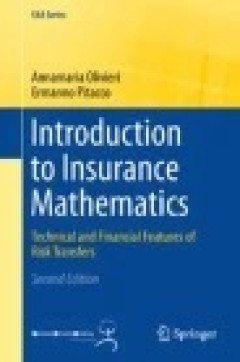
Introduction to Insurance Mathematics: Technical and Financial Features of Ri…
This second edition expands the first chapters, which focus on the approach to risk management issues discussed in the first edition, to offer readers a better understanding of the risk management process and the relevant quantitative phases. In the following chapters the book examines life insurance, non-life insurance and pension plans, presenting the technical and financial aspects of risk t…
- Edition
- -
- ISBN/ISSN
- 978-3-319-21377-4
- Collation
- -
- Series Title
- -
- Call Number
- -
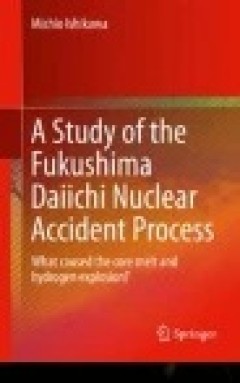
A Study of the Fukushima Daiichi Nuclear Accident Process: What caused the co…
Written by an expert in the field, this book is perfect for those who would like to know what happened at the Fukushima Daiichi Nuclear Power Plant. Part 1 of the book studies how core melts occurred in Fukushima Daiichi units 1, 2, and 3, respectively, based on evidence from the Three-Mile Island core melt accident and fuel behavior experiments performed in the 1970s under the cooperation betw…
- Edition
- Ed. 1
- ISBN/ISSN
- 978-4-431-55543-8
- Collation
- XVI, 231
- Series Title
- -
- Call Number
- 621.38 ISH s
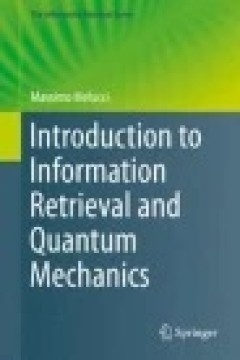
Introduction to Information Retrieval and Quantum Mechanics
This book introduces the quantum mechanical framework to information retrieval scientists seeking a new perspective on foundational problems. As such, it concentrates on the main notions of the quantum mechanical framework and describes an innovative range of concepts and tools for modeling information representation and retrieval processes. The book is divided into four chapters. Chapter 1 …
- Edition
- -
- ISBN/ISSN
- 978-3-662-48313-8
- Collation
- -
- Series Title
- -
- Call Number
- -
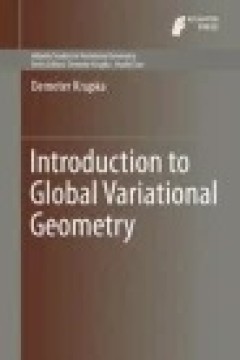
Introduction to Global Variational Geometry
The book is devoted to recent research in the global variational theory on smooth manifolds. Its main objective is an extension of the classical variational calculus on Euclidean spaces to (topologically nontrivial) finite-dimensional smooth manifolds; to this purpose the methods of global analysis of differential forms are used. Emphasis is placed on the foundations of the theory of variationa…
- Edition
- -
- ISBN/ISSN
- 978-94-6239-073-7
- Collation
- -
- Series Title
- -
- Call Number
- -
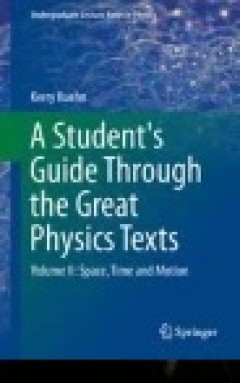
A Student's Guide Through the Great Physics Texts: Volume II: Space, Time and…
This book provides a chronological introduction to the science of motion and rest based on the reading and analysis of significant portions of Galileo’s Dialogues Concerning Two New Sciences, Pascal’s Treatise on the Equilibrium of Fluids and the Weight of the Mass of Air, Newton’s Mathematical Principles of Natural Philosophy, and Einstein’s Relativity. Each chapter begins with a sh…
- Edition
- Ed. 1
- ISBN/ISSN
- 978-1-4939-1366-4
- Collation
- XXVI, 380
- Series Title
- Undergraduate Lecture Notes in Physics
- Call Number
- 501 KUE s
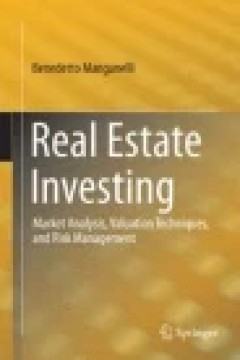
Real Estate Investing: Market Analysis, Valuation Techniques, and Risk Manage…
This book describes in full the major approaches used to evaluate investment in real estate and shows how theory informs decision-aid methods and tools to support such evaluation. The inclusion of numerous examples makes it also a practical guide to assessing the suitability of an investment property. The first part of the text is devoted to an analysis of the housing market through the stud…
- Edition
- -
- ISBN/ISSN
- 978-3-319-06397-3
- Collation
- -
- Series Title
- -
- Call Number
- 332

A Student's Guide Through the Great Physics Texts: Volume I: The Heavens and …
This book provides a chronological introduction to the sciences of astronomy and cosmology based on the reading and analysis of significant selections from classic texts, such as Ptolemy’s The Almagest, Kepler’s Epitome of Copernican Astronomy, Shapley’s Galaxies and Lemaître’s The Primeval Atom. Each chapter begins with a short introduction followed by a reading selection. Carefull…
- Edition
- Ed. 1
- ISBN/ISSN
- 978-1-4939-1360-2
- Collation
- XXVII, 396
- Series Title
- Undergraduate Lecture Notes in Physics
- Call Number
- 501 KUE s
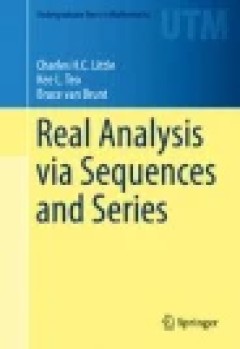
Real Analysis via Sequences and Series
This text gives a rigorous treatment of the foundations of calculus. In contrast to more traditional approaches, infinite sequences and series are placed at the forefront. The approach taken has not only the merit of simplicity, but students are well placed to understand and appreciate more sophisticated concepts in advanced mathematics. The authors mitigate potential difficulties in mastering …
- Edition
- -
- ISBN/ISSN
- 978-1-4939-2651-0
- Collation
- -
- Series Title
- -
- Call Number
- 001.4
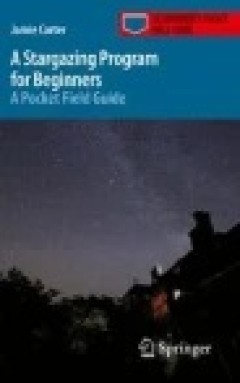
A Stargazing Program for Beginners: A Pocket Field Guide
Sets out a simple month-by-month program to reveal all of the night sky's biggest and most beautiful secrets in just one year – and with only a few hours of stargazing each month By investing just an hour a week and $50 in binoculars, it’s possible to learn a few simple techniques and quickly gain a real insight into the night sky's ever-changing patterns – and what they tell us about E…
- Edition
- -
- ISBN/ISSN
- 978-3-319-22072-7
- Collation
- XVI, 419
- Series Title
- Astronomer's Pocket Field Guide
- Call Number
- 520 CAR s
 Computer Science, Information & General Works
Computer Science, Information & General Works  Philosophy & Psychology
Philosophy & Psychology  Religion
Religion  Social Sciences
Social Sciences  Language
Language  Pure Science
Pure Science  Applied Sciences
Applied Sciences  Art & Recreation
Art & Recreation  Literature
Literature  History & Geography
History & Geography